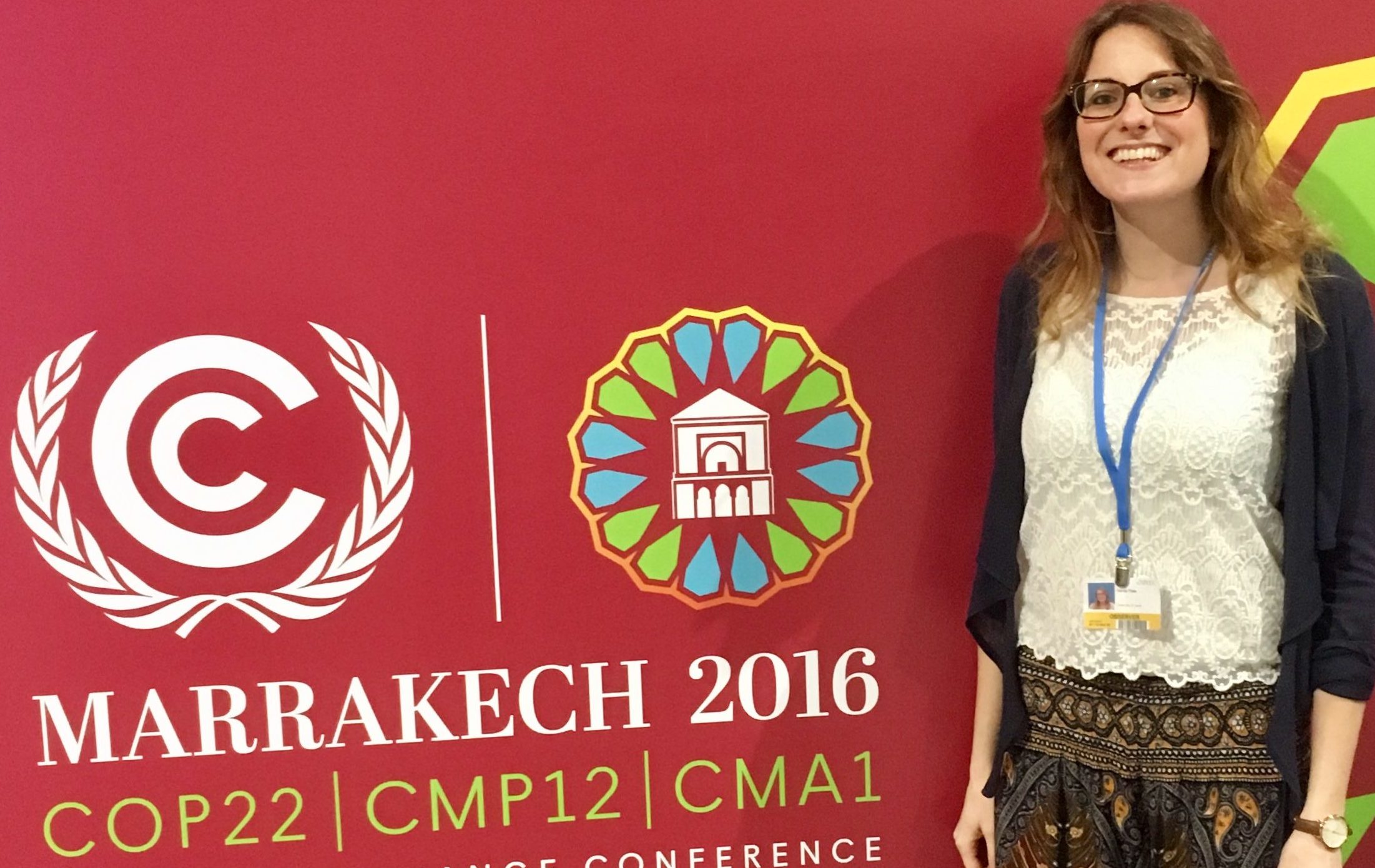Navigating intersectional identities in the United Nations Framework Convention on Climate Change

The United Nations Framework Convention on Climate Change (UNFCCC) is, as its name suggests, fraught with acronyms. In order to engage with this process it is critical to learn a new language, to get your head around the “SB’s”, the NAPs, the COPs, the LULUCFs. There is little point in me explaining these terms. For those engaged in the climate talks they will have become second nature. For those who aren’t, the explanation is barely any clearer than the acronym.
Individuals and organisations participating in the process (usually) select or are assigned an identity as part of one of nine civil society constituencies. Identities on the menu come with their own acronyms: for example you can join the business NGOs (BINGO), environmental NGO (ENGO), research NGOs (RINGO) Indigenous People’s Organisations (IPOs) or the youth NGOs (YOUNGO). The acronyms may sound silly, but, as climate change governance research has highlighted, the implications of these identities are serious; they shape the roles which groups are expected to perform, and thus, profoundly affect the agency of non-state actors.
Identities and implications
For me, the implications of my UNFCCC identity have never felt as tangible nor as restrictive as they have this year, at COP22 (as the 22nd meeting, or Conference of the Parties, is known) in Marrakesh from 7-18 November. It has become clear to me that I, and many others, do not fit into one such category and that a more intersectional approach could be helpful in the mobilisation of real people for real climate solutions.
Back in 2012, I began attending UNFCCC negotiations when my professional focus shifted from local to international climate change governance. I was surprised to discover that, in spite of my student days being several years behind me, in spite of my career as an adaptation and climate change education practitioner, even in spite of my mortgage, I could be considered, on account of my being under 30 years of age, to be a youth: a “YOUNGO”. This was extremely novel.
Having firmly undergone what academic youth research calls the “transition to adulthood”, I delighted in telling my friends and colleagues that I was now officially considered to be a youth…and they laughed. Actually, they found it ridiculous. At the time, I was managing the global environmental education and advocacy programme for the World Association of Girl Guides and Girl Scouts, so I had some legitimacy to speak on behalf of youth, though I initially struggled to internalise the youth label. Whilst being categorised as a “youth” did open some doors and create certain opportunities, I found it difficult to share my professional expertise as a former adaptation practitioner, which was pretty frustrating.
Labels and limitations
Time and time again, I saw this to be the case with other individuals and “youth” organisations. In YOUNGO, I worked alongside people who, outside of the UNFCCC space, were respected professionals: environmental consultants, government workers, even an IPCC (Intergovernmental Panel on Climate Change) scientist. However, due to the hierarchical nature of the organisations they worked for, they struggled to get accreditation through their place of work, turning instead to youth organisations in order to participate in a governance process they cared deeply about. This shaped their perceived credibility and, in turn, their agency.
However, it was not all bad. As time went on, I came to really value the youthful identity which others ascribed to me, as it bestowed upon me an elixir of truth, the ability to say what was on everyone’s minds but was too politically sensitive to be on anyone else’s lips. It also gave me a form of moral authority and a connection to future generations, which negotiators and other "adult" participants are denied.
Having recently crossed the 30 milestone, I am no longer considered a youth by the UNFCCC. Incidentally, having recently returned to student life to undertake a PhD, I now feel younger than I did in 2012, but nevertheless, I find myself re-housed in another constituency – adopting a new UNFCCC identity as a researcher, a “RINGO”. The role I am expected to play has changed and I’ve come to realise what I have lost, in addition to what I have gained.
Mobilisation of the multifaceted human
Everyone’s identity, experience and capability to contribute to climate change governance is different. Whilst working in siloes that are built around one common aspect of identity enables us to pool resources, it can also limit us from contributing our full capabilities as complex, multifaceted humans.
In the post-Paris era of the UNFCCC, it is acknowledged that all actors are required to implement climate action, not only governments: we need all hands on deck to ensure that top-down climate policy is supported by bottom-up solutions. To do this, it is vital that we break through the categories assigned to us and find novel ways to collaborate rather than competing for state-actor attention and resources. We need to look beyond the labels, to the unique capabilities of the individual, to create opportunities for people at all levels to contribute their full capacity to tackling the climate crisis, rather than just one side of themselves.
Harriet Thew
(Sustainability Research Institute, Priestley international Centre for Climate and Centre for Climate Change Economics and Policy, University of Leeds)
23 November 2016
